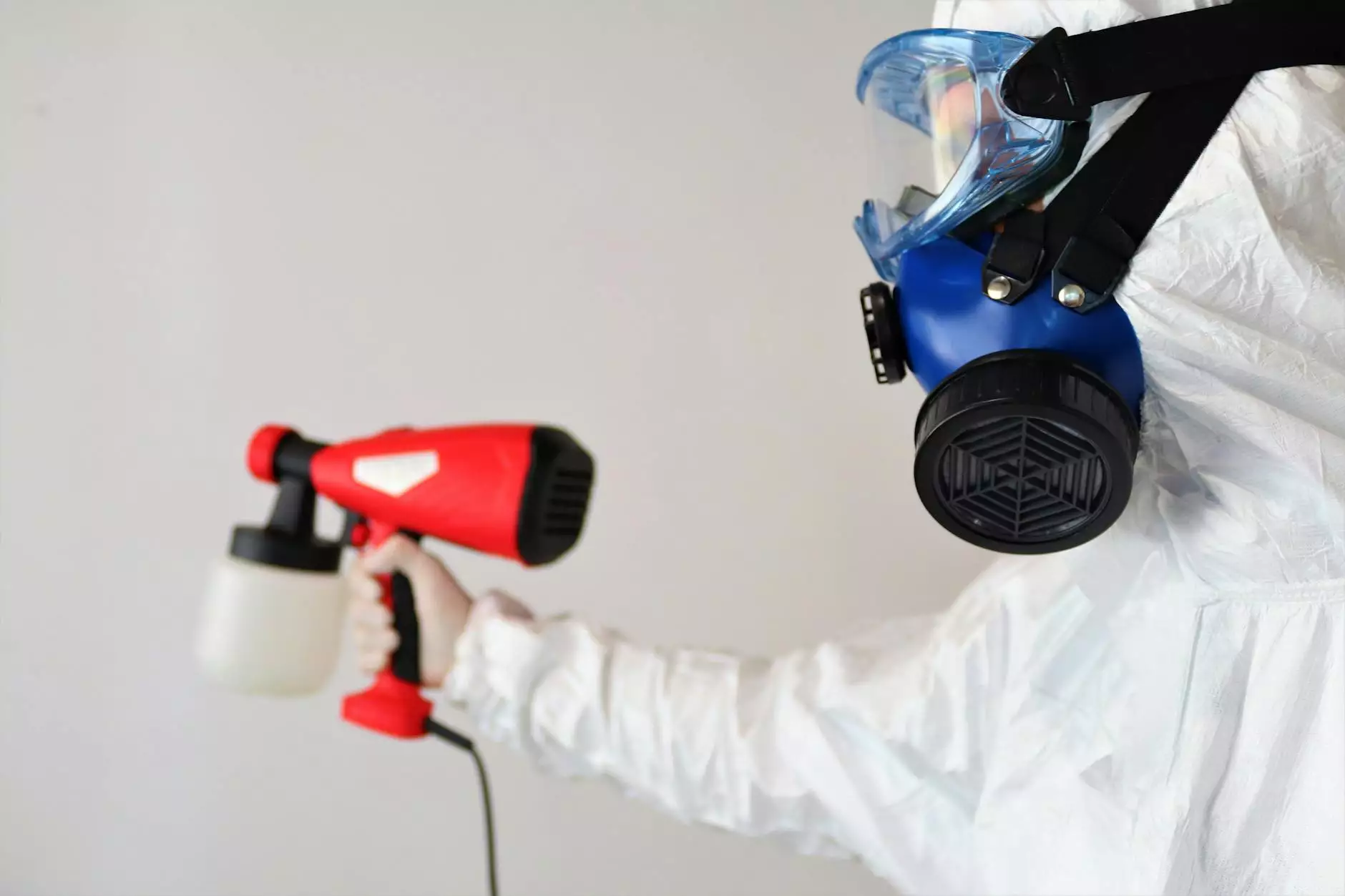Mold Remediation Definition: Understanding Its Importance for Your Business

Mold is a common issue in various environments, particularly in damp and humid conditions. It can pose serious health risks and cause significant damage to properties, making mold remediation an essential process for businesses. In this article, we will delve into the mold remediation definition, explore its significance, and explain why every business owner should prioritize it.
What is Mold Remediation?
The mold remediation definition can be summarized as the process of identifying, removing, and preventing the regrowth of mold in an environment. Mold removal is not merely about cleaning; it involves comprehensive assessment and corrective actions to ensure that mold does not return.
Key Components of Mold Remediation
- Inspection: A thorough evaluation of the premises to identify mold presence and affected areas.
- Containment: Procedures to contain and minimize the spread of mold spores during remediation.
- Filtration: Utilizing air filtration systems to remove airborne mold spores and particles.
- Removal: Safely removing mold-infested materials and cleaning surfaces.
- Restoration: Repairing or replacing structures affected by mold damage and ensuring environments are returned to a safe condition.
- Prevention: Implementing measures to prevent future mold growth, such as addressing moisture problems.
Understanding the Health Risks Associated with Mold
Exposure to mold can lead to various health issues, particularly for sensitive individuals. Common health risks include:
- Allergic Reactions: Symptoms like sneezing, runny nose, and skin rashes.
- Respiratory Problems: Issues such as wheezing, coughing, or shortness of breath.
- Aggravation of Asthma: Mold exposure can exacerbate asthma symptoms in individuals with the condition.
- Long-term Health Risks: Prolonged exposure can lead to serious respiratory infections and other health complications.
Because of these risks, effective mold remediation is crucial not only for the health of your employees and customers but also for the overall perception of your business.
The Impact of Mold on Business and Property
Mold can infiltrate businesses in various ways, from water leaks to high humidity levels. The presence of mold can have a devastating impact on a business, including:
- Structural Damage: Mold can weaken the structural integrity of buildings, necessitating expensive repairs.
- Decreased Property Value: A mold issue can significantly reduce the market value of your property.
- Legal Implications: Failure to address mold issues may expose your business to lawsuits from employees or customers.
- Loss of Revenue: Affected areas might need to be closed for remediation, impacting your bottom line.
- Reputation Damage: Negative publicity can arise from mold problems, damaging your brand's image.
Steps for Effective Mold Remediation
Understanding the mold remediation definition is just the beginning. To effectively carry out mold remediation, the following steps should be adhered to:
1. Conduct a Detailed Inspection
A professional mold inspector should be engaged to conduct a comprehensive assessment. This inspection will help identify:
- Visible mold growth
- Moisture sources
- Affected materials and surfaces
2. Contain the Mold
It is critical to contain mold to prevent spores from spreading during the remediation process. This can be achieved through:
- Sealing affected areas with plastic sheeting
- Using negative air pressure systems
3. Remove Mold and Restore Affected Areas
Once contained, the mold can be safely removed. This may involve:
- Discarding infested porous materials (like drywall or carpeting)
- Cleaning non-porous surfaces with specialized cleaning solutions
After mold has been removed, any damage done to the structure should be repaired, which may include replacing drywall or redoing insulation.
4. Implement Preventative Measures
To avoid future mold growth, it is important to address underlying moisture issues. This could be achieved by:
- Repairing leaks promptly
- Improving ventilation systems
- Using dehumidifiers in humid areas
Why Choose Professional Mold Remediation Services
While some businesses may consider handling mold issues internally, it’s important to recognize the benefits of professional services. Here’s why:
- Expertise: Professionals are trained and experienced in proper mold remediation techniques.
- Safety: Professionals know safe methods and personal protective equipment (PPE) to minimize health risks.
- Comprehensive Solutions: They offer holistic solutions including testing, removal, and prevention strategies.
- Cost-Effectiveness: While hiring professionals may seem costly upfront, it can save businesses from long-term costs associated with improper remediation.
Cost of Mold Remediation
The costs associated with mold remediation vary widely, depending on several factors:
- The extent of the mold problem
- The size of the affected area
- The complexity of the remediation needed
- Location and accessibility of the mold-infested areas
It’s crucial for businesses to budget for mold remediation as part of their overall facility management strategy. Not addressing the issue can lead to further financial burden in the long run.
Conclusion: Prioritizing Mold Remediation in Your Business Strategy
Understanding the mold remediation definition and its associated processes is vital for every business. Prioritizing effective mold remediation not only protects your property but also safeguards the health and well-being of your employees and clients. Investing in professional services can reduce long-term risks and costs, ensuring your business operates in a safe and healthy environment.
By implementing thorough mold remediation strategies, businesses like yours, especially those in humid regions, can ensure that mold is managed effectively, thereby contributing to a sustainable and profitable future.
For more information on mold remediation and to seek expert help, visit Vital Restoration, where we specialize in comprehensive mold remediation and restoration services tailored to your unique business needs.









